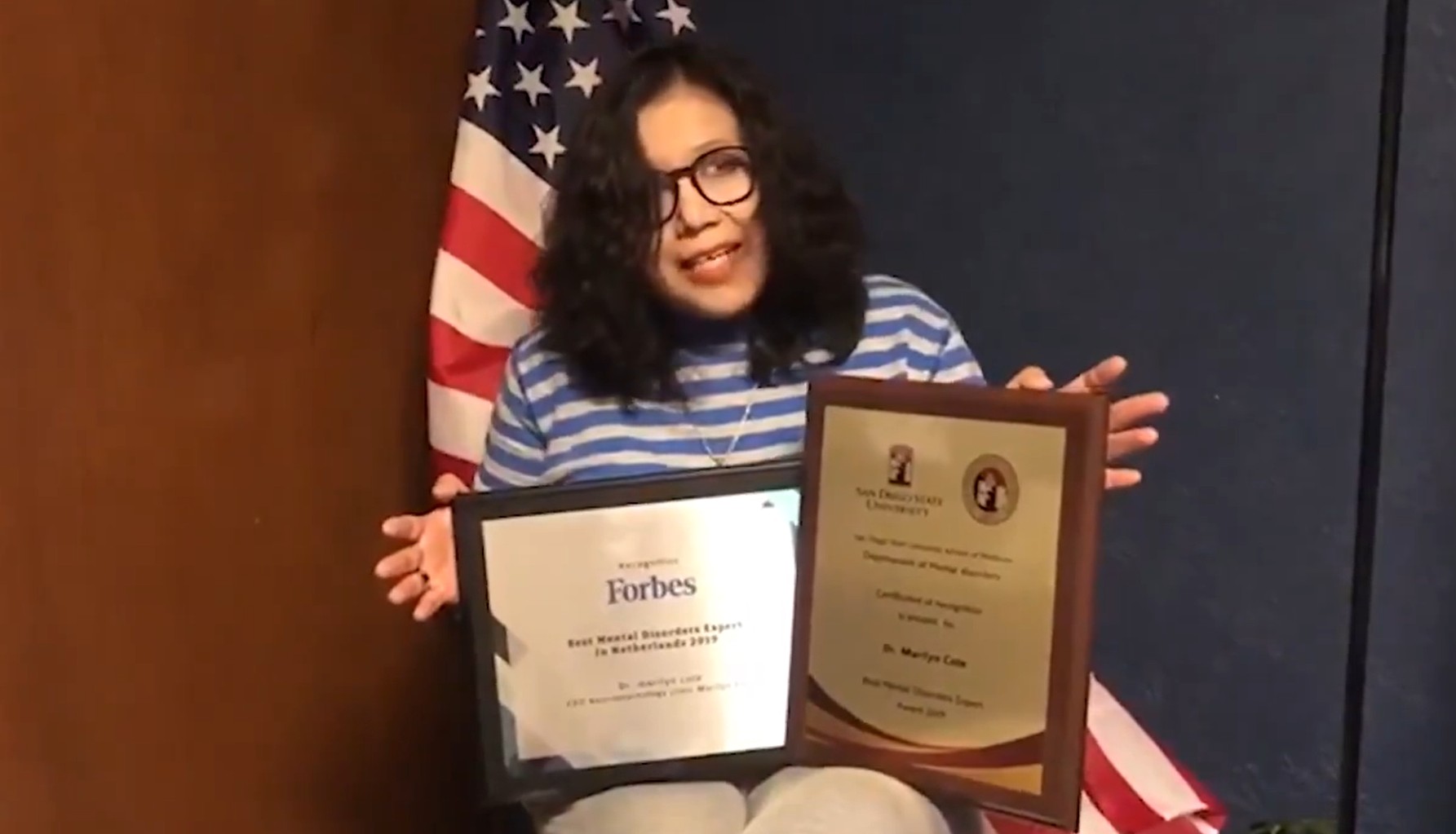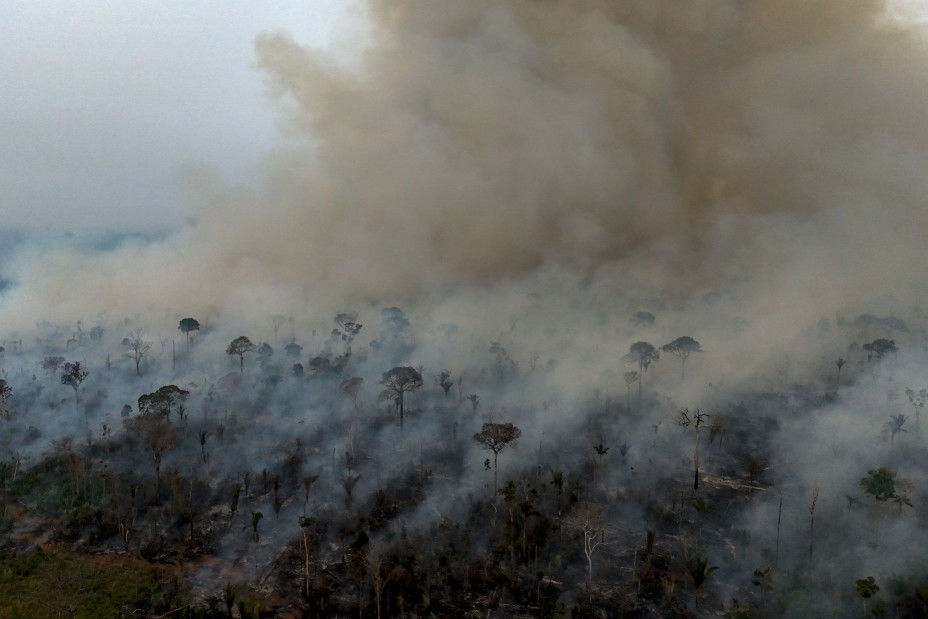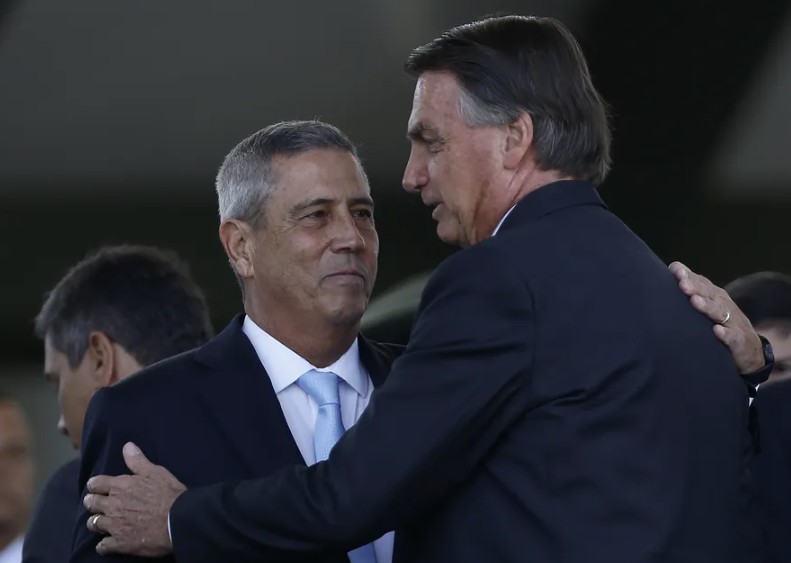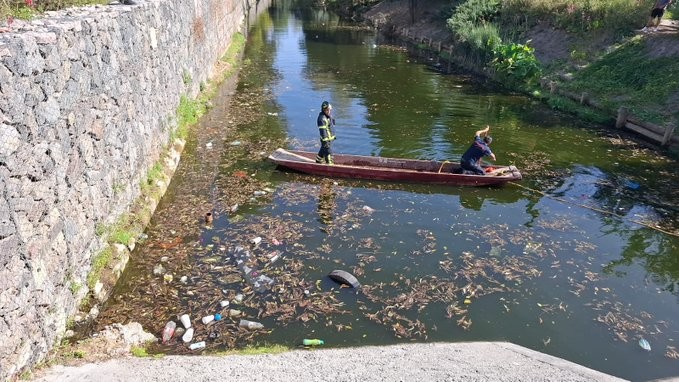G20: mayors from around the world gather in Rio to present key demands
Document estimates cities will need $800 billion annually until 2030 to tackle climate change challenges After four days of discussions at the Armazém da Utopia in Rio's port area, the Urban 20 (U20)—a G20 forum that brings together leaders from major cities worldwide—concluded yesterday with the presentation of a document to President Luiz Inácio Lula da Silva. The document was signed by representatives from the 26 member cities of the U20, along with seven observer cities and 25 invited cities, totaling over 100 cities represented in the discussions. The document focuses on addressing climate change issues, emphasizing that local governments will need approximately $800 billion annually until 2030 for investments to mitigate urban impacts. G20 Social: Final statement advocates taxing the ultra-wealthy and condemns far-right misinformation Fun in Rio: 20 paired activities for the G20 holiday weekend in Rio de Janeiro Lula received the document from Rio's Mayor Eduardo Paes, alongside Mayors Yvonne Aki-Sawyer of Freetown, Sierra Leone's capital, and Anne Hidalgo of Paris. Chilean President Gabriel Boric also attended the ceremony as a guest. The expectation is for the Brazilian government to present the document at the main G20 summit, happening today and tomorrow at the Museum of Modern Art (MAM), with the participation of heads of state and government from the world's largest economies. The document contains 36 items covering topics such as social inclusion, combating hunger and poverty, reforming global governance institutions, sustainable development, and energy transition. Upon receiving the document, Lula stated that "cities cannot bear the cost alone (...) of financing the climate transition" and stressed the need for both global investment and "appropriate multilateral governance." Urban 20: Mayors from various global cities pose for official photo Beth Santos/City of Rio de Janeiro Funding sources Event host Eduardo Paes remarked on the world's current era of global transformations and advocated for changes in world governance to ensure cities can access international funding for climate solutions. — We, as mayors, know how challenging our role can be. We urge governments to commit to providing US$ 800 billion annually to address climate change until 2030. The differences and inequalities between cities in the Southern Hemisphere need to be addressed — said Rio's mayor. The concern over securing funding sources for projects preparing cities for climate change and the potential impact of Donald Trump's election on U.S. energy policy efforts were topics at the press conference concluding the U20. — Where will the resources come from? That's the million-dollar question. We handed over a manifesto to the G20 because they have the answer. We believe that they (the wealthier countries) should contribute resources. Emissions have contributed to the current scenario where we suffer from floods, landslides, wildfires, and heatwaves — said Mayor Yvonne Aki-Sawyerr. Mayor Eduardo Paes noted that, regardless of government funds, there are development entities interested in providing credit to cities. The U20-approved letter mentions that 56% of the world's population lives in urban areas, with expectations that this percentage will rise to 70% by 2050. The document also highlights that there are currently over 50 armed conflicts worldwide, which have a "direct impact on cities and their populations," leading to increased inflation and social vulnerability, as well as affecting food and energy security. Recommendations The document offers recommendations for global leaders, including urging Brazil to lead efforts against hunger and poverty and the global mobilization against climate change. It also advocates for the global implementation of progressive tax measures, where higher rates apply to the wealthiest segments of the population. Other highlights from the U20 document Social protection: Global, national, and local support to protect workers during the economic and energy transition process and address conflicts and crises caused by climate disasters. Food and nutrition: Ensuring equal access to food for everyone to combat hunger, especially concerning children. Equality: Recognizing and ensuring equal access to healthcare, education, employment, and digital services and infrastructure for people with disabilities. Guaranteed rights: Effective public services providing water, sanitation, housing, and healthcare to adapt to demographic changes, including immigration. Green and sustainable jobs: Investments in sustainable employment, engaging with vulnerable communities, including those at risk of job loss due to digital transformation. Culture: Understanding culture as an element of creativity, diversity, and knowledge transmission in the global sustainable development agenda. The translation of this text into english was carried out by Project Irineu, O GLOBO's initiative to develop artificial intelli
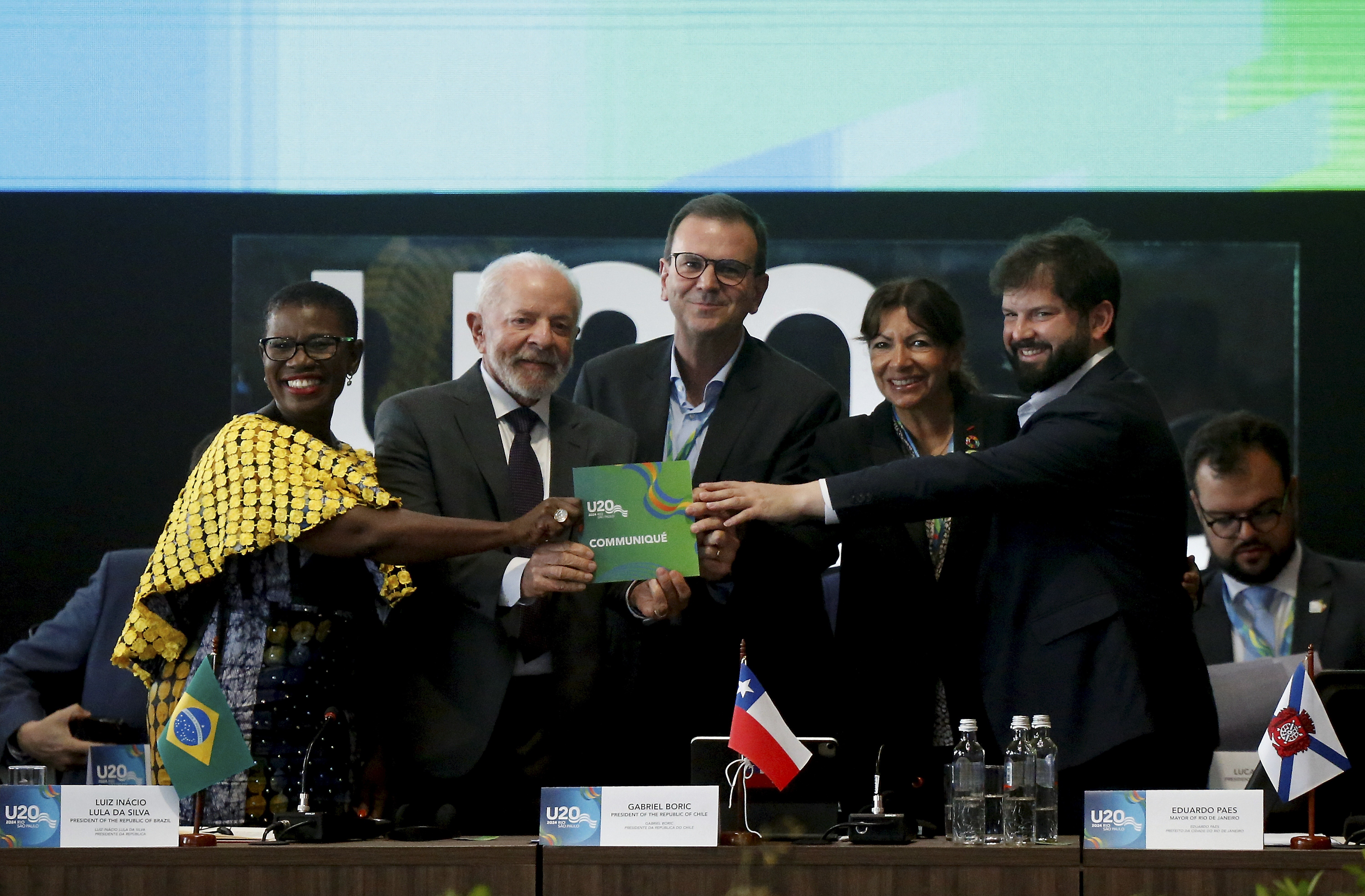

Document estimates cities will need $800 billion annually until 2030 to tackle climate change challenges After four days of discussions at the Armazém da Utopia in Rio's port area, the Urban 20 (U20)—a G20 forum that brings together leaders from major cities worldwide—concluded yesterday with the presentation of a document to President Luiz Inácio Lula da Silva. The document was signed by representatives from the 26 member cities of the U20, along with seven observer cities and 25 invited cities, totaling over 100 cities represented in the discussions. The document focuses on addressing climate change issues, emphasizing that local governments will need approximately $800 billion annually until 2030 for investments to mitigate urban impacts. G20 Social: Final statement advocates taxing the ultra-wealthy and condemns far-right misinformation Fun in Rio: 20 paired activities for the G20 holiday weekend in Rio de Janeiro Lula received the document from Rio's Mayor Eduardo Paes, alongside Mayors Yvonne Aki-Sawyer of Freetown, Sierra Leone's capital, and Anne Hidalgo of Paris. Chilean President Gabriel Boric also attended the ceremony as a guest. The expectation is for the Brazilian government to present the document at the main G20 summit, happening today and tomorrow at the Museum of Modern Art (MAM), with the participation of heads of state and government from the world's largest economies. The document contains 36 items covering topics such as social inclusion, combating hunger and poverty, reforming global governance institutions, sustainable development, and energy transition. Upon receiving the document, Lula stated that "cities cannot bear the cost alone (...) of financing the climate transition" and stressed the need for both global investment and "appropriate multilateral governance." Urban 20: Mayors from various global cities pose for official photo Beth Santos/City of Rio de Janeiro Funding sources Event host Eduardo Paes remarked on the world's current era of global transformations and advocated for changes in world governance to ensure cities can access international funding for climate solutions. — We, as mayors, know how challenging our role can be. We urge governments to commit to providing US$ 800 billion annually to address climate change until 2030. The differences and inequalities between cities in the Southern Hemisphere need to be addressed — said Rio's mayor. The concern over securing funding sources for projects preparing cities for climate change and the potential impact of Donald Trump's election on U.S. energy policy efforts were topics at the press conference concluding the U20. — Where will the resources come from? That's the million-dollar question. We handed over a manifesto to the G20 because they have the answer. We believe that they (the wealthier countries) should contribute resources. Emissions have contributed to the current scenario where we suffer from floods, landslides, wildfires, and heatwaves — said Mayor Yvonne Aki-Sawyerr. Mayor Eduardo Paes noted that, regardless of government funds, there are development entities interested in providing credit to cities. The U20-approved letter mentions that 56% of the world's population lives in urban areas, with expectations that this percentage will rise to 70% by 2050. The document also highlights that there are currently over 50 armed conflicts worldwide, which have a "direct impact on cities and their populations," leading to increased inflation and social vulnerability, as well as affecting food and energy security. Recommendations The document offers recommendations for global leaders, including urging Brazil to lead efforts against hunger and poverty and the global mobilization against climate change. It also advocates for the global implementation of progressive tax measures, where higher rates apply to the wealthiest segments of the population. Other highlights from the U20 document Social protection: Global, national, and local support to protect workers during the economic and energy transition process and address conflicts and crises caused by climate disasters. Food and nutrition: Ensuring equal access to food for everyone to combat hunger, especially concerning children. Equality: Recognizing and ensuring equal access to healthcare, education, employment, and digital services and infrastructure for people with disabilities. Guaranteed rights: Effective public services providing water, sanitation, housing, and healthcare to adapt to demographic changes, including immigration. Green and sustainable jobs: Investments in sustainable employment, engaging with vulnerable communities, including those at risk of job loss due to digital transformation. Culture: Understanding culture as an element of creativity, diversity, and knowledge transmission in the global sustainable development agenda. The translation of this text into english was carried out by Project Irineu, O GLOBO's initiative to develop artificial intelligence tools. Here is the link to the original report.
Qual é a sua reação?







